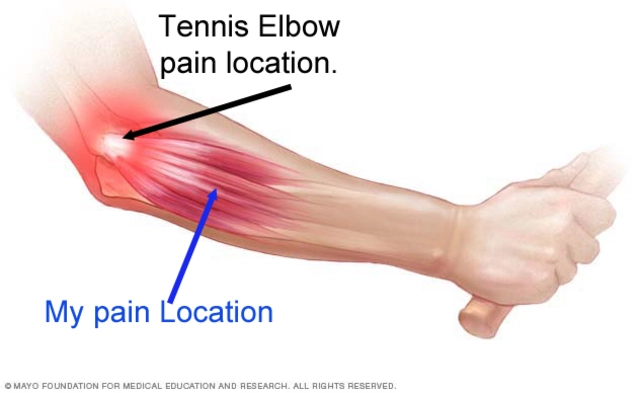Silent stands, steady hands: Scotland win on the road in Hungary
No crowd, no roar, no Tartan Army. Just a World Cup qualifier staged in near silence at the ZTE Arena in Zalaegerszeg, Hungary—neutral ground and behind closed doors after Belarus were ordered to move home matches off their soil and play without fans in response to the country’s backing of Russia’s invasion of Ukraine. In that strange setting, Scotland vs Belarus still carried weight, and Steve Clarke’s team handled it with a calm 2-0 win that felt bigger than the score.
The match had the eerie, echoing feel of Covid-era football. You could hear the calls, the claps, the referee’s whistle crack through the air. Scotland didn’t flinch. They set the tone early and never really let it slip. Che Adams struck just before half-time, finishing from close range after Scotland had pinned Belarus back for long spells. After the break, Zakhar Volkov diverted a Billy Gilmour delivery into his own net, and the job was done.
This was measured, controlled, and overdue in this campaign—a professional away win with few scares. The Tartan Army had made the trip to Hungary but were locked out, so the players had to generate their own energy. They did it with clean passing, smart pressing, and a midfield that moved the ball with purpose.
Clarke rotated after a heavy night in Copenhagen, bringing in Ben Doak, Max Johnston, Scott McKenna, and Gilmour. The fresh legs mattered. Scotland looked sharper in transitions and braver between the lines. Gilmour took the ball on the half-turn and fed runners. Scott McTominay, back in his national-team comfort zone, drove the tempo and made late entries into the box.
Early chances came and went. McTominay flashed one wide; Gilmour forced a save and then watched another effort turned onto the post. Scotland wanted a penalty on 15 minutes when Gilmour went down under Kiryl Pechenin’s challenge, but Montenegrin referee Nikola Dabanovic waved play on. No VAR intervention, no whistle—play continued. It could have rattled Scotland. It didn’t.
At the other end, Angus Gunn had one real moment to solve, getting down smartly to deny Pechenin. That was the warning shot. After that, Belarus rarely broke the line with any menace. John Souttar and McKenna guarded the box, while the wing-backs set their line high to keep Belarus in their own third. It was territorial control, not just possession for possession’s sake.
Adams’ opener came as the pressure told. Scotland recycled a second phase, the ball stayed alive, and Adams stabbed it in after a knockdown. The timing mattered—just before the interval, when Belarus might have felt they’d ridden out the storm. Instead, they walked off a goal behind and chasing the game.
After the restart, Scotland stayed on the front foot. Gilmour’s delivery into the mixer had whip and shape, and Volkov, tracking back under pressure, flicked it into his own net. It was unlucky for the defender, but it reflected the flow: Scotland were forcing Belarus into mistakes around their six-yard box. From there, it was control. Keep the ball, keep the shape, keep the clean sheet.
Chances for a third came through set pieces and cutbacks, with McTominay and John Souttar both threatening, but the two-goal cushion was enough. Clarke didn’t need drama; he needed points and a performance that resets the mood. He got both.

Tactics, selection, and what comes next
Clarke’s plan was clear: dominate midfield, stretch the flanks, and avoid a chaotic end-to-end game that might give Belarus counter-attacks to chase. The selections helped. Johnston offered reliable width and recovery pace on the right. Doak gave Scotland a direct outlet, dragging defenders back and opening pockets for the midfield. Gilmour ran the rhythm—short angles, quick switches, inviting wing-backs forward. One- and two-touch sequences kept Belarus moving, and that movement created the space for Adams and the late-arriving McTominay.
The shape flexed between a back three and a back five depending on Belarus’s out-ball. When Belarus tried to launch early, Souttar and McKenna attacked the first contact while the nearest wing-back squeezed in to win the second ball. That meant Belarus rarely built any sort of sustained pressure. When they did break, Gunn’s handling was clean, taking crosses early and killing time when needed.
Set plays looked organized. Scotland stacked runners at the near post and used decoy blocks to open lanes for deeper targets. The deliveries had bite, and Belarus didn’t look comfortable clearing their lines. Volkov’s own goal summed it up: relentless pressure around the penalty spot and a ball fizzing into dangerous space.
Game management was better, too. With a two-goal lead, Scotland didn’t retreat to the edge of their box. They kept the ball in safe zones, recycled through Gilmour and the back three, and forced Belarus to chase shadows. That took the sting out of any late rally and protected legs for the fixtures to come.
Refereeing didn’t define the match, but it did shape the mood early. The waved-away penalty could have become a talking point in a tighter game. Instead, Scotland’s response—tighten the press, keep the tempo high—turned the decision into a footnote. That’s what top sides do away from home: remove variables by being better at the basics.
The wider picture looks healthier. Scotland now have four points from two away matches and, just as important, two clean sheets. Denmark’s 3-0 win over Greece on the same night leaves both Scotland and Denmark on four points, with the Danes ahead on goal difference. This is still a tight group, but Scotland’s trajectory is right. The attacking patterns looked more connected, the defensive line was stable, and the transitions were cleaner.
Personnel-wise, there were quieter wins. Adams needed a goal, and he got one the way strikers like them—close range, decisive. Gilmour reminded everyone why he’s central to Clarke’s plan. McTominay found space in both boxes. Johnston showed he can handle a qualifying night on the road. Doak’s direct running gave Scotland a stretch threat they’ve sometimes lacked against set defences.
There’s more to polish. The final ball from wide areas could be cleaner. The timing of the last pass around the D still needs a split-second more composure. But the framework is sound, and the confidence seems to be coming back after a demanding window.
Now comes the part that could tilt the group: a home double-header at Hampden Park against Greece and then Belarus. The Tartan Army will be back, and that changes the feel entirely. Hampden can carry a team through sticky spells and turn momentum in seconds. Clarke won’t want chaos; he’ll want the same control shown in Hungary, layered with the extra edge that home support brings.
Scotland have put themselves in a sensible position: points on the board, goals shared around, and a defensive platform that travels. They’ve handled a strange night on neutral turf and taken care of business. If they bottle the control from Zalaegerszeg and pour it into Hampden, this campaign starts to look like it has gears.
- Two away games, two clean sheets: the base is back.
- Che Adams on the scoresheet at the right time.
- Billy Gilmour and Scott McTominay set the rhythm in midfield.
- Rotations worked: Max Johnston and Ben Doak added energy and width.
- Set-piece pressure forced mistakes, including the decisive own goal.
The margins in qualifying are narrow, but nights like this matter. No noise, no fuss—just three points in the bag and a bit of momentum when it’s most useful.






